Job 19:23-27
1 Corinthians 15:51-57
Mark 16:1-8
April 1, 2018
Christ is risen! He is risen indeed! Alleluia!
Every January hundreds of thousands of people march in Washington D. C. to protest the crime of abortion. Currently our nation is impassioned trying to figure out how to prevent mass shootings. Over the past few decades billions of dollars and countless hours have been spent educating youth on the dangers of using tobacco and abusing alcohol and others substances. And every war our country has participated in for the past fifty years has incited anti-war protests. These are just a few examples of mass attempts to prevent early death.
Of course, everyone is going to die eventually. So, billions and billions of dollars are spent every year on medical procedures, supplements, and many other methods to delay death. And even if people can't delay death, they will at least try to look younger, so that the reminder of death is stifled a bit.
No matter who you are, what country you're from, what language you speak, the color of your skin, your political views or religious affiliation, death is not simply a probability, but an absolute certainty! And while many will try to rub it off repeating oxymora like, "Death is just a part of life.", everyone knows deep down inside that death is bad. No one wants to die. And no one wants their loved-ones to die.
Death is God's judgment against sin. St. Paul writes, "The sting of death is sin." 1 Corinthians 15:56); and "Therefore, just as sin came into the world through one man and death through sin, and so death spread to all men, because all sinned." (Romans 5:12); and "The wages of sin is death." (Romans 6:23) The reason why we die is because we are infested from our very conception with sin. That is our diagnosis given by God. So, if you want to deal with the death problem we all have, you need to deal with the sin problem!
This is why we celebrate Easter. Jesus rose from the dead bodily. This is an historical fact, which has been verified over and over again through historical records not the least of which are the four Gospels of the New Testament. The only reason why anyone would deny the resurrection of Christ is because it happens to be impossible for dead people to rise form the dead. But nothing is impossible with God.
But knowing the historical facts isn't good enough. Christ's resurrection from the dead has huge gains for you. But you cannot understand what Christ has gained for you in his resurrection unless you see what Christ has achieved in his death upon the cross.
Jesus was innocent of all sins, as we know. Neither Pilate nor Herod found any guilt in him. And Scripture clearly says Jesus committed no sin and had done no violence, yet God laid on him the iniquity of us all. Jesus died upon the cross for your sins and for the sins of the whole world. For our sake, God made him to be sin, who knew no sin, in order that, we might become the righteousness of God. You cannot see the significance of this Easter Day, unless you realize the significance of Good Friday. God found Jesus guilty of your sins. The wrath of God for your guilt fell upon Christ.
You might wonder, "well, how could the death of one man pay for the sins of billions upon billions of people?" Jesus is not simply a man. He is also true God, begotten of the Father before all worlds and conceived by the Holy Spirit of the Virgin Mary. Jesus' human and divine natures are so closely united that whatever Jesus does, both God and man does. So, when Jesus suffered on the cross, it was the eternal Son of God bearing our sins. God is immortal, yet we sang on Friday night, "O sorrow dread! Our God is dead."
So, because Jesus is truly a human being, and because he is truly God, he is able to die in our place and his death is worth the weight of countless souls. If sinners should outnumber the grains of sand in the sea or the stars in the sky, Jesus' blood would still be potent enough to grant forgiveness to all. We heard on Good Friday from 2 Corinthians 5, "We have concluded this: that one has died for all, therefore all have died." In Christ's death upon the cross all our deaths were paid. Now the whole world is reconciled to God.
So, what does Christ's resurrection mean in light of this knowledge about Good Friday? It proves that all I just said is true. We are reconciled to God. Our sins are washed away. Jesus' death achieved what it was supposed to! If Jesus were not God's Son, he would still be in the grave. If Jesus failed to wash away even a single sin, he would have remained in the grave. And if Jesus is in the grave, the debt of our sin remains on us and death still reigns over us. But if all die with Christ, since Christ died with all our sins, then all rise with Christ as well. This is why we celebrate Easter! Jesus' resurrection from the dead is a loud proclamation that death is swallowed up in victory. Death has lost its sting. And God has given us the victory through Christ Jesus.
This is why we believe that we are saved by grace through faith alone apart from our works. To be saved by grace means that you are saved by a gift from God. To be saved through faith means that you do not work to earn eternal life, but rather you believe and trust in God's work for you which gives you eternal life as a gift. You were born in sin, incapable of loving or choosing God. And there is no work that you could do to appease God's wrath against your sins. But God sent Jesus to appease His wrath for you. Jesus did everything necessary to save you. The only way you can be saved is to trust in what Jesus has done for you.
Since we are saved by grace and not by our good works, many think that means we can do whatever we want. "Let us sin, so that grace may abound! It doesn't matter what we do, since our works don't save us anyway!" But this way of thinking is detrimental to saving faith! St. Paul writes in Romans chapter 6, "How can we who died to sin still live in it?" And St. Peter writes that with the precious blood of Jesus and his innocent suffering and death "you were ransomed from the futile ways of your forefathers." (1 Peter 1:18) Jesus rescued you from death by bearing your sin! You cannot rejoice in Christ's resurrection from the dead while delighting in your sin! Christians gather to worship every Sunday, because Jesus rose from the dead on the first day of the week. Yet, we preach Christ crucified, because it was on the cross where Jesus paid the debt for our sins that his resurrection gains its significance. And it is the fact that Jesus died to take away your sins that should cause you to flee from sin.
To celebrate the resurrection of Christ is to celebrate Jesus' removal of your sins from you. This is why St. Paul writes in 1 Corinthians chapter 5, "Do you not know that a little leaven leavens the whole lump? Cleanse out the old leaven that you may be a new lump, as you really are unleavened. For Christ, our Passover lamb, has been sacrificed. Let us therefore celebrate the festival, not with the old leaven, the leaven of malice and evil, but with the unleavened bread of sincerity and truth." Christ's death and resurrection for you means that God has removed your sins from you. You are unleavened. And you will live with Christ in righteousness and purity forever. And God desires for you to live sinless now. And if the Spirit, who raised Christ Jesus from the dead, dwells in you, then you certainly want the same thing.
Christians don't want to sin. Why would we want to return to slavery leading to death, which Christ labored so hard to rescue us from? To willingly continue in sin without repenting is to deny Christ and to be the same as an unbeliever. The same apostle, who wrote so clearly and beautifully that we are not saved by our works, but we are saved by grace through faith in Jesus Christ alone also wrote, "Or do you not know that the unrighteous will not inherit the kingdom of God? Do not be deceived: neither the sexually immoral, nor idolaters, nor adulterers, nor men who practice homosexuality, nor thieves, nor the greedy, nor drunkards, nor revilers, nor swindlers will inherit the kingdom of God." (1 Corinthians 6:9-10)
But I thought we were saved by faith alone apart from our works? How then can Paul say that such sinners will not inherit the kingdom of God? Because true faith includes repentance. Without repentance from sin, your faith is a false faith, because true faith recognizes that sin is the cause of death and the reason for Christ's crucifixion.
This does not mean that Christians don't sin. Christians do indeed sin. But this is because of our weak flesh, which we still must live with in this life. St. Paul describes it well, "For I know that nothing good dwells in me, that is, in my flesh. For I have the desire to do what is right, but not the ability to carry it out. For I do not do the good I want, but the evil I do not want is what I keep on doing." (Romans 7:18-19) But here Paul, the Christian, does not delight in his sin. He laments it. And he finishes this chapter saying, "Wretched man that I am! Who will deliver me from this body of death? Thanks be to God through Jesus Christ our Lord!" (vss. 24-25) Although Paul's body is polluted with sin, he has confidence that Jesus Christ has delivered him from his body of death.
And this is why Christians daily repent of their sins. We believe that through daily contrition and repentance the old Adam in us is drowned and dies and that a new man arises. We repent of our sins, because we believe in the resurrection of Christ and in our own resurrection. We repent of our sins, because we believe that God will forgive us, no matter how grievous our sins are, no matter how many times we have fallen and repented again.
The resurrection of Christ is not an annual celebration for the Christian. It is not even simply a weekly celebration. You, the Christian, celebrate Easter every day when you put to death your old self through repentance of sin, and put on your new self through faith in the forgiveness of sins. You live every hour with the assurance that Christ's resurrection proves that your sin is put away and death cannot harm you.
Christ is risen! He is risen indeed. Alleluia!
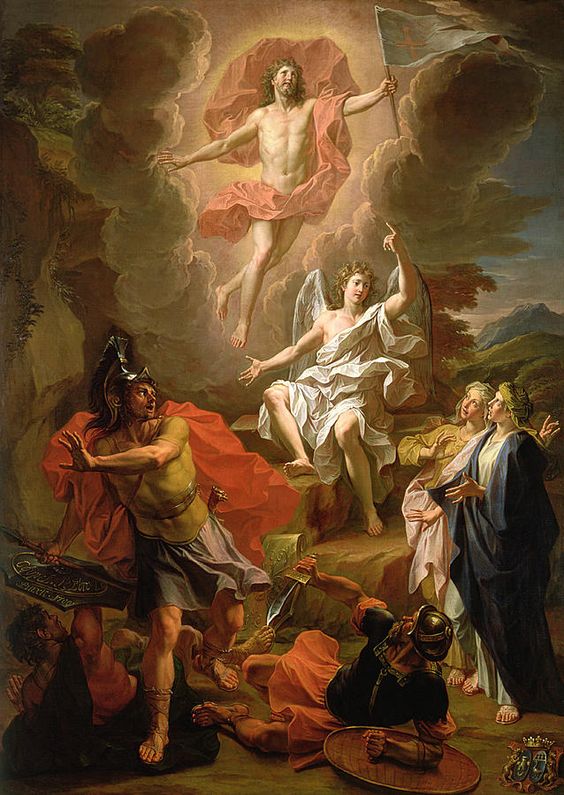
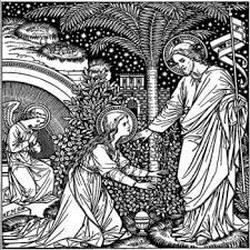
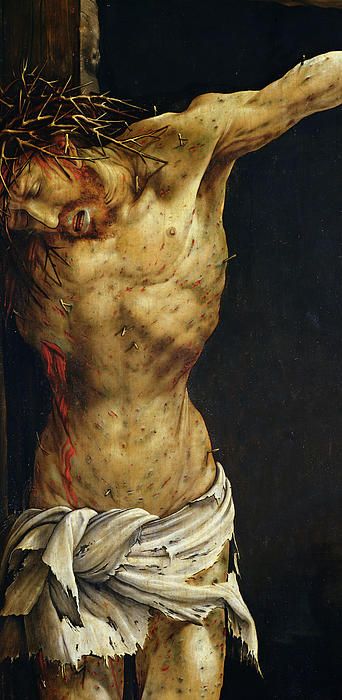

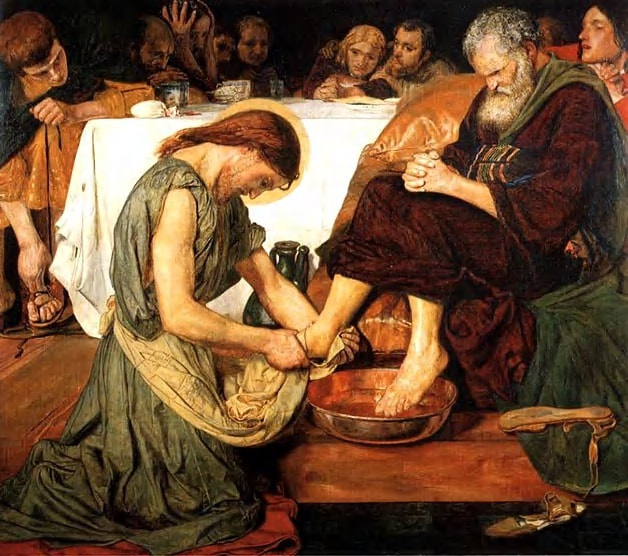
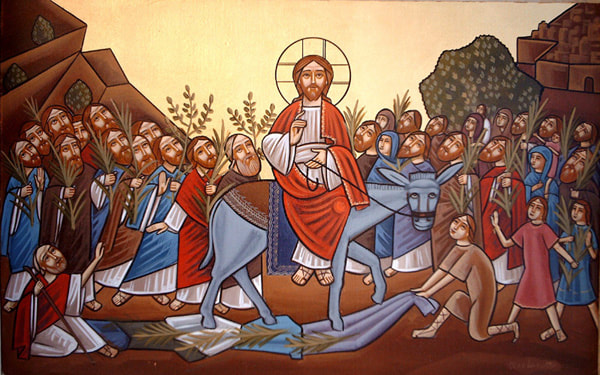
 RSS Feed
RSS Feed